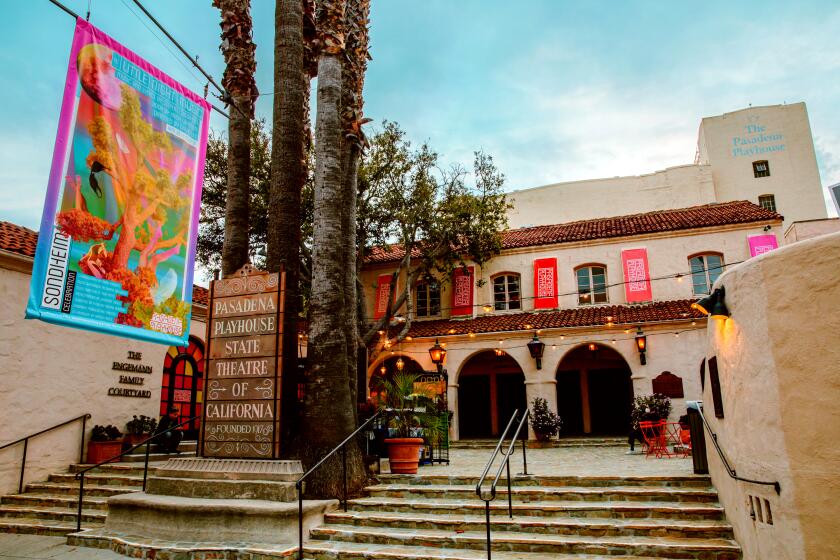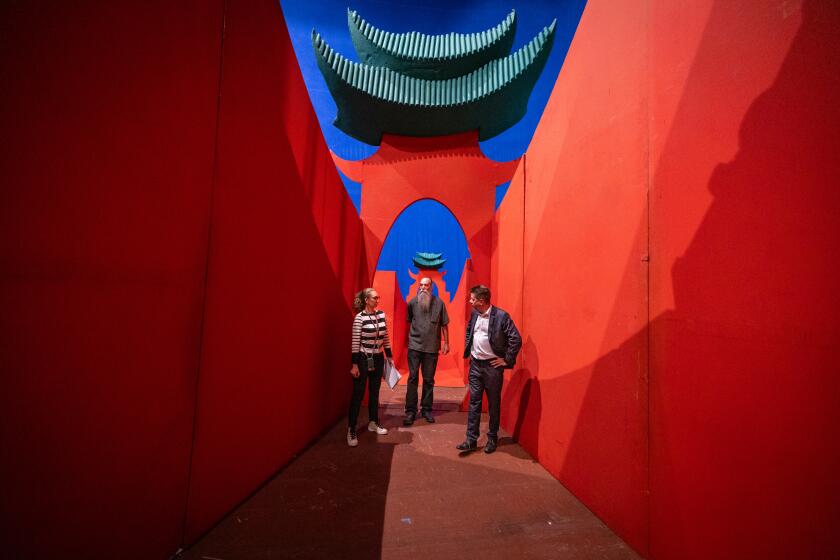DO GRANTS AID OR HURT ART? HEARING MULLS ISSUE
If a young Monet or Degas were painting in America today, would governmental arts funding squelch or support the artists shunned as reprehensibly avant-garde more than 100 years ago?
Such a query was the basis for a congressional oversight hearing held here Friday by the House subcommittee on select education that oversees arts legislation. Congressman Pat Williams (D-Mont.), chairman of the committee, led the meeting at which several civic and cultural leaders, most from the Bay Area, testified.
“The New Painting: Impressionism 1874-1886,” a blockbuster exhibition now drawing 5,000 visitors a day at the M.H. de Young Memorial Museum here, provided partial impetus for the hearing.
The French Impressionist painters, today immensely popular, were scoffed at by the art establishment a century ago. Are present-day governmental arts funding policies creating similar scenarios? Do they inhibit or encourage the emergence of new art, art beyond the mainstream? Williams and his committee wanted to know.
One plea heard throughout the meeting, held at the San Francisco Museum of Modern Art, was for protection of the National Endowment for the Arts, currently facing a possible budget cutback under the Reagan Administration’s proposed fiscal year 1986-87 budget.
Henry T. Hopkins, director of the San Francisco Museum of Modern Art, began the testimony by stating that historically “there has never been a more comprehensive public and private support system for American artists.
“Nonetheless,” he said, “federal support for the arts should be quadrupled if government is to claim any meaningful role in the continued emergence of American art in the world.”
Playing devil’s advocate, Williams asked hearing panelists if the endowment might not be guilty of stifling non-mainstream artists who receive endowment funds by bringing them into the mainstream with its national acknowledgement and subsequent association with the very establishment against which the artists are rebelling .
The general response to the question was an assurance that non-mainstream artists would continue to rebel against their artistic predecessors even with endowment support, and that such support was needed. Hopkins wondered, however, if there were not some way to “get food money to the artists while still allowing them to create” without funneling them into the mainstream, commercial arena.
Williams posed another hypothetical question regarding federal arts support: Could innovation and experimentation at alternative artists’ spaces (like the Los Angeles Contemporary Exhibitions) be stifled by institutional support?
“I think artists are more stifled when they have to compete in a commercial environment,” replied Judy Moran, co-director of New Langton Arts, a San Francisco artists organization. Artists are forced to gear their ideas to fit certain demands of commercial institutions, she said, such as conforming to mainstream tastes.
“But public funding is remarkably neutral. Its priority isn’t profit, thus artists can create and explore without fear of losing support.”
The corporate world made a plea for the healthy survival of the endowment at the hearing as well. Timothy L. Porter, regional director of government relations at AT&T;, which sponsored the “New Painting” exhibit, described a corporate reluctance to fund avant- garde or experimental art and a bias toward established, proven art.
Porter said the endowment was a leader in funding new art, cutting a path for reluctant private sector funders to follow.
“The NEA must have at its disposal a critical mass of funds to exercise its leadership role,” he said.”
Other testimony offered during the hearing included suggestions that if endowment funds are cut, care should be taken that smaller arts organizations don’t suffer more than larger ones, that the rights of artists be better protected and that tax incentives for giving to charitable institutions be maintained or improved.
After the hearing, Williams told The Times: “I think we heard that the federal effort would enhance the chance of finding a Monet lurking in our society today.”
More to Read
The biggest entertainment stories
Get our big stories about Hollywood, film, television, music, arts, culture and more right in your inbox as soon as they publish.
You may occasionally receive promotional content from the Los Angeles Times.






